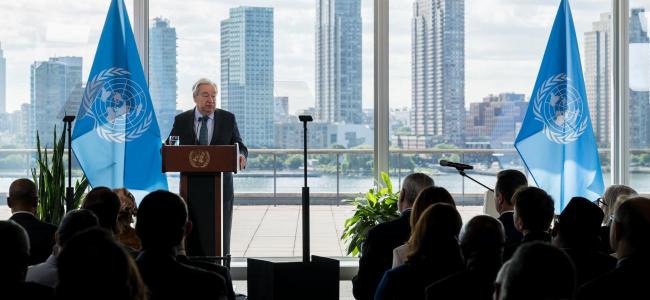Africa risks being left behind in global renewable energy shift, UN warns

Sub-Saharan Africa remains severely energy-poor. According to the report, 85 percent of the region’s 565 million people still had no access to electricity in 2023.
Africa is falling far behind in the global transition to renewable energy, risking the loss of major economic and environmental benefits unless swift action is taken, a new United Nations report has warned.
The report, titled Seizing the Moment of Opportunity, highlights that Africa’s renewable energy development has lagged significantly since the 2015 Paris Agreement, despite the continent having enormous potential.
As of the end of 2024, Africa contributed just 1.5 percent of global renewable energy capacity, even though it is home to 20 percent of the world’s population.
Sub-Saharan Africa remains severely energy-poor. According to the report, 85 percent of the region’s 565 million people still had no access to electricity in 2023.
The UN estimates that Africa’s renewable energy potential is more than ten times greater than its expected electricity demand by 2040 under the 1.5°C warming limit scenario agreed on in Paris.
While other regions such as China and the European Union have advanced rapidly in clean energy adoption, Africa remains stuck.
The cost of renewable technologies has dropped dramatically, solar photovoltaics by 41 percent and onshore wind by 53 percent—yet these options remain out of reach in much of Africa.
The report attributes this to a combination of policy shortcomings, financial barriers, and high capital costs.
“Inconsistent policies, fossil fuel subsidies, and weak carbon pricing are some of the biggest challenges,” the report says. It calls for stronger government leadership to create stable policy signals and attract investment in clean energy.
The report further notes that since the Paris Agreement, less than 20 percent of global clean energy investment has flowed to emerging markets and developing countries outside China—a category that includes most of Africa.
Political instability, unclear regulations, and currency fluctuations continue to drive investors away.
Still, there are glimmers of progress. Kenya’s decentralized clean energy sector, including solar home systems and mini grids, provided employment for about 50,000 people in 2021.
But the UN says this represents only a small portion of what could be achieved continent-wide.
If African governments take urgent and coordinated action, the report says the continent could gain up to 3.5 percent more jobs and boost social welfare by more than 25 percent by 2050.
The report urges African leaders to turn pledges—like Kenya’s goal of achieving 100 percent clean energy by 2030—into action, especially in the lead-up to the COP summit in Brazil.
It warns that inaction could entrench dependence on fossil fuels, harming both the continent’s growth prospects and global efforts to combat climate change.
